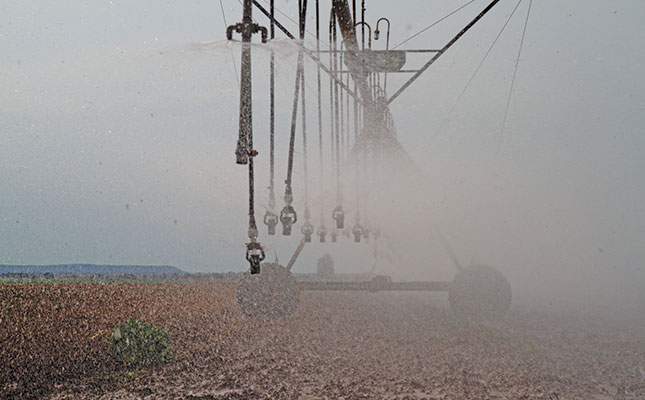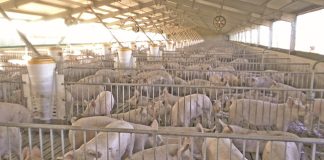
Photo: FW Archive
The increasing restraints on freshwater supplies is threatening global food security. Urgent action is therefore needed to make water use in agriculture more sustainable and equitable.
This was according to a recent report by the Food and Agriculture Organization of the United Nations (FAO).
It said irrigated agriculture remained by far the largest user of freshwater on the planet, while dryland agriculture was increasingly faced with precipitation variability driven by climate change.
According to the report, 3,2 billion people currently lived in agricultural areas with high to very high water scarcity, and 1,2 billion people lived in areas with very high water constraints.
The FAO said in the report that population growth and socio-economic development were the main drivers of water scarcity. The anticipated impact of climate change, such as uncertain rainfall and water availability, further aggravated the situation.
The annual volume of available freshwater resources per person had declined by more than 20% in the past two decades.
The report suggested that for the 171 million hectares of the world’s irrigated cropland under high or very high water stress, incentivising practices that increased water productivity needed to be prioritised.
This included the rehabilitation and modernisation of existing irrigation infrastructure, and adoption of innovative technologies. These should be combined with improved water governance to guarantee equitable allocation and access to water, as well as environmental flows necessary to sustain water-related ecosystems, the report stated.
Prof Francois Durand, associate professor of zoology at the University of Johannesburg, told Farmer’s Weekly the South African agriculture sector relied on agrochemicals to such an extent that it entered the runoff to rivers, wetlands and dams.
According to him, the overuse of surface water worsened the situation. “Because of the poor management of local water resources and declining water levels, there is now even less water to dilute these chemicals in our river systems and dams where these chemicals accumulate.”
“The quality of the water in our rivers, wetlands, lakes and dams has deteriorated exponentially over the past 40 years due to our farming methods. The water in most of our rivers have become undrinkable if left untreated,” he added.
| *South Africa is celebrating its annual National Water Week from 15 to 22 March, which will culminate in the United Nations’ World Water Day celebrated around the world on Monday, 22 March. |












